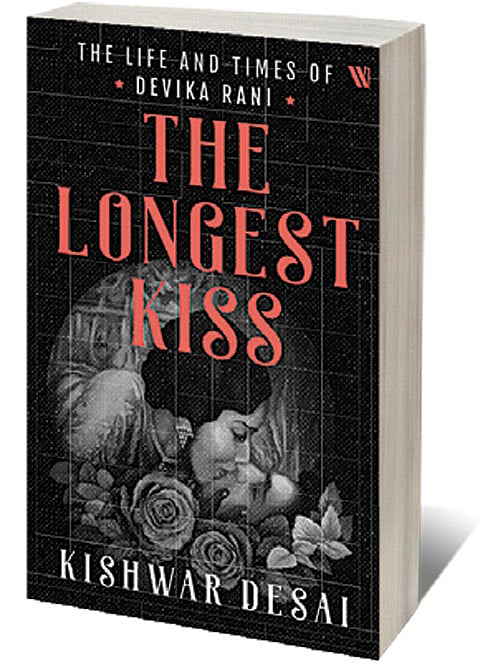The Kiss of Life

THE YEAR WAS 1933. On screen, Himansu Rai lay supine on the floor, the victim of a snake bite. Devika Rani, his sensuous sari-clad heroine, great grandniece of Rabindranath Tagore, kissed him alive. Some critics counted the minutes. Two said one, five said another. The movie was Karma (1933) and it won Devika rave reviews, though her role in writing the breakthrough film was never publicly revealed.
Undermining her contribution was to become a pattern. On the surface everything was polished perfection. The beautiful couple, 16 years apart, ran India’s flashiest film studio, Bombay Talkies, giving breaks to stars such as Ashok Kumar, employing a multinational crew and making movies, which were screened and reviewed globally. But simmering beneath the surface was Himansu’s verbal and physical abuse, which Devika endured in a 14-year-long marriage. He would hit her, till she bled and fainted. She would run away with a co-star, he would bring her back. She would nurse him in his dying days. And the institution that they had built would soon lose its finest talent to a rival studio set up by one-time insiders. They didn’t leave any children who would in time-honoured Bollywood tradition keep the family name alive, and the industry’s history-keepers have not always understood the magnificence of their inheritance.
But Kishwar Desai’s The Longest Kiss addresses that gap and based on 4,000 new documents, many of them Devika’s letters to her beloved second husband, painter Svetoslav Roerich, chronicles a fascinating personal account against the backdrop of sweeping global changes, such as the advent of talking pictures, the rise of the Third Reich and the emergence of the Swadeshi movement in India. What emerges is the story of an iron rose, written almost like a screenplay, of a woman who learnt to be financially independent and creatively liberated despite all odds.
Desai, who is an accomplished mystery writer and author of the well-received biography Darlingji: The True Love Story of Nargis and Sunil Dutt (2007) is adept at separating fact from fiction, self-perpetuating myths from actual accomplishments. She gives us an account of Himansu as a hustler of extraordinary proportions, a man who would beg, borrow and bamboozle his way into cinematic history. Equally, Devika Rani is no wilting wallflower but a woman who is unapologetically ambitious and knows she is not made for the margins of life. The Longest Kiss is as much about their complex relationship as it is about the magnificent men and women who made India’s early cinema, despite a heavy British hand leading to a tendency to choose exotic subjects like the life of Buddha (The Light of Asia, 1925) or the making of Taj Mahal (Shiraz, 1928).
It's the Pits!
13 Feb 2026 - Vol 04 | Issue 58
The state of Indian cities
Desai spends considerable time detailing the breakdown of the relationship between Devika and Himansu, his descent into a nervous breakdown, her chafing at the studio contract that demanded she do three movies a year. It restores Devika Rani to her rightful place in history, which patriarchy for so long denied her. As Desai writes: ‘She had sold her jewellery, lived in near penury, stood by him even though he had betrayed her, helped pay off his debts, raised funds through her personal contacts, shared his dreams, abandoned her family to marry him, worked day and night for the films at Bombay Talkies. Yet, in the eyes of most people, he was the one who was being exploited by her.’
She was seen as the actress on the make, a usurper, and he the heart and soul of Bombay Talkies, as Saadat Hasan Manto described him. When she sold her shares in Bombay Talkies in 1945 and embarked on a new life with Roerich, the actor and producer in her stopped working. Thanks to Desai, a new generation of women filmmakers will now hear her speak out and speak up, claiming the credit that was denied to her.

